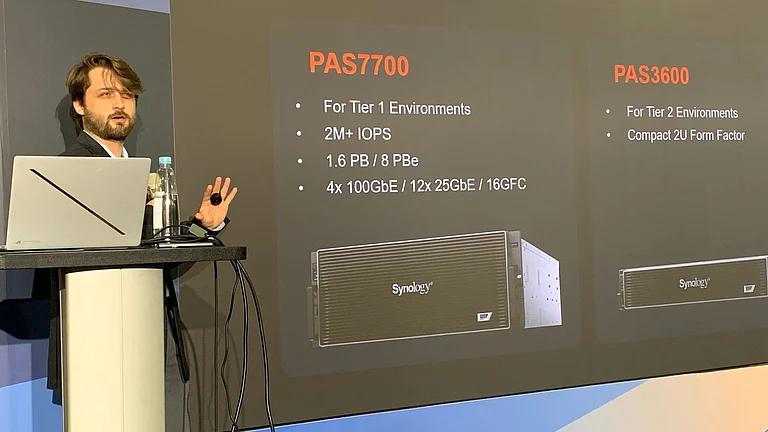Synology, a Taiwan-based corporation best known for its network-attached storage systems, has launched a new cloud-based surveillance solution to expand its presence in the increasingly competitive Video Surveillance as a Service (VSaaS) market.
Synology Taps Onto Cloud Surveillance Market with New VSaaS Platform
Branded as C2 Surveillance, the platform is designed to simplify video monitoring for enterprises operating across multiple sites
Branded as C2 Surveillance, the platform is designed to simplify video monitoring for enterprises operating across multiple sites. Synology has announced the launch at Computex 2025, Taipei, amid growing demand for cloud-native alternatives to traditional surveillance infrastructure, which often involves significant capital outlays and operational complexity.
The company's new launch marks a continuation of its strategy to diversify beyond storage into enterprise-facing software services. “Our goal has always been to build a comprehensive surveillance ecosystem that enables seamless integration and management for our customers,” said Josh Lin, Director of Synology’s Surveillance Group.
The new platform allows deployments to be made entirely in the cloud or as part of a hybrid infrastructure, a flexibility that may appeal to organisations with varying operational constraints.
Installation, according to Synology, can be completed within minutes via mobile devices, and the platform does not impose per-device licensing fees—an uncommon feature in a segment often characterised by tiered pricing models.
The company assured that, keeping in mind several data privacy issues, video data can be stored locally on microSD cards. Although there will be an option to back up to Synology’s C2 Cloud, a design that supports failover capabilities in the event of network interruptions. Such a setup may prove attractive to firms seeking to ensure continuity without investing heavily in on-premises infrastructure.
To ensure better security, several features like AES-128 encryption, multi-factor authentication, and role-based access controls have been included. The platform also claims compliance with ISO 27001 and SOC 2 Type II standards, and support for the National Defence Authorisation Act (NDAA), which could be relevant for government or defence-related procurement.
Integration with Windows Active Directory enables centralised identity and access management—an increasingly common requirement as firms consolidate IT oversight across locations. Synology also touts a low-bandwidth mode that reduces network usage by up to 50% with minimal impact on video quality, a potentially useful feature for remote or bandwidth-constrained sites.
The VSaaS market has attracted a growing number of players, from legacy hardware providers such as Axis Communications to cloud-native platforms like Verkada and Eagle Eye Networks. Synology’s entry reflects not only growing customer interest in cloud-managed surveillance, but also a shift in its positioning from hardware vendor to a broader IT solutions provider.
Nevertheless, market fragmentation remains significant. While cloud surveillance is gaining traction with heightened security measures by corporates, driven by hybrid work models and heightened security demands, buyer preferences vary widely depending on regulatory environments, data residency concerns, and network infrastructure. Synology’s success in this arena may depend on whether it can deliver a balance of affordability and reliability without diluting its core strengths in data storage.
